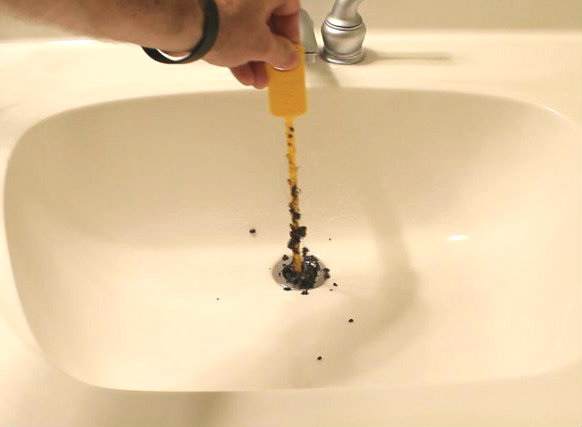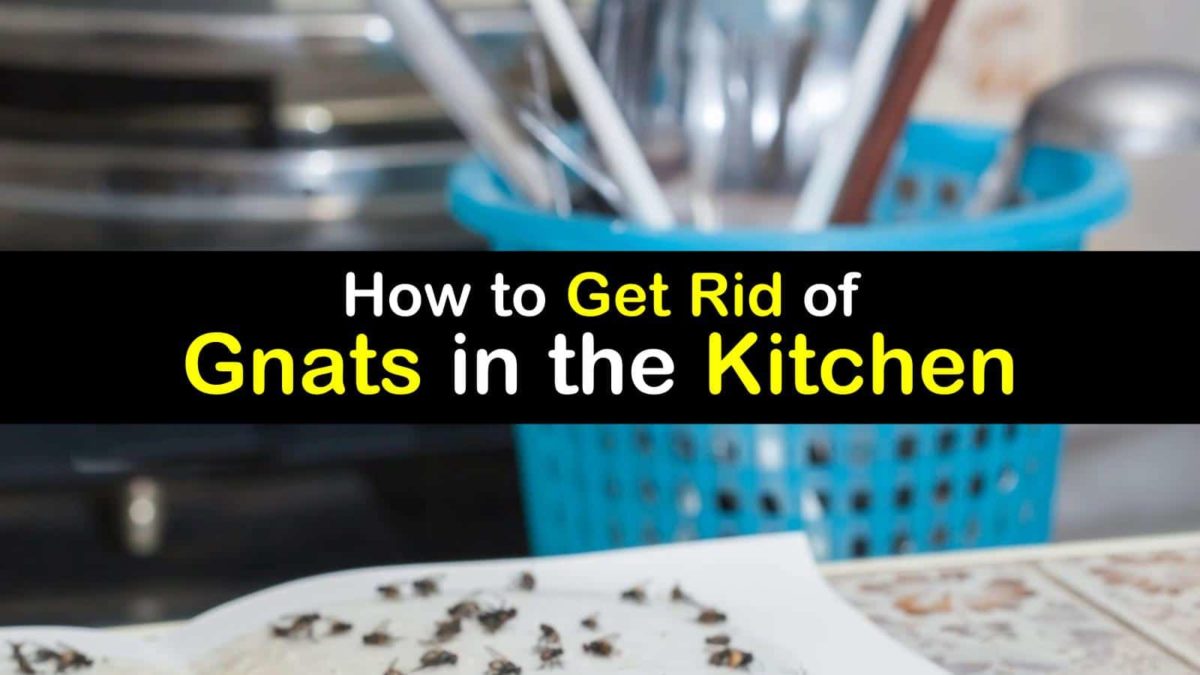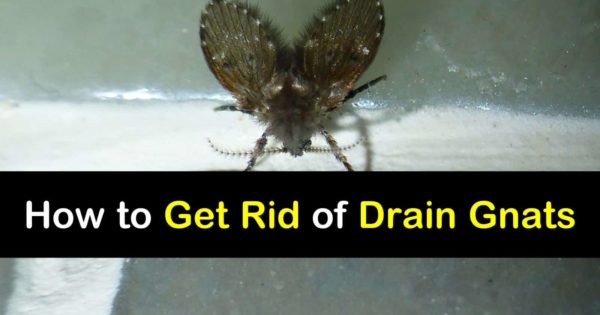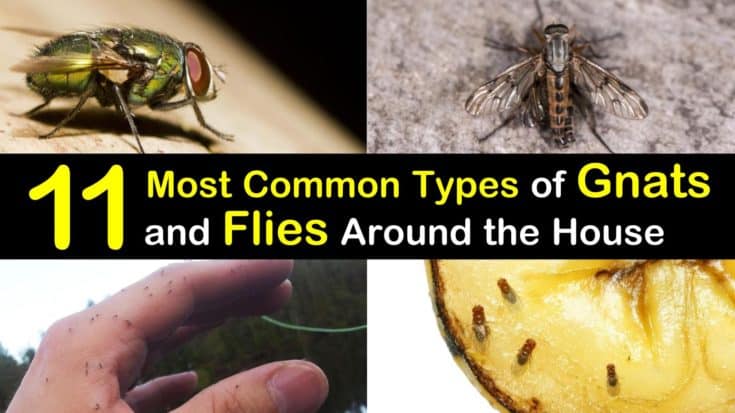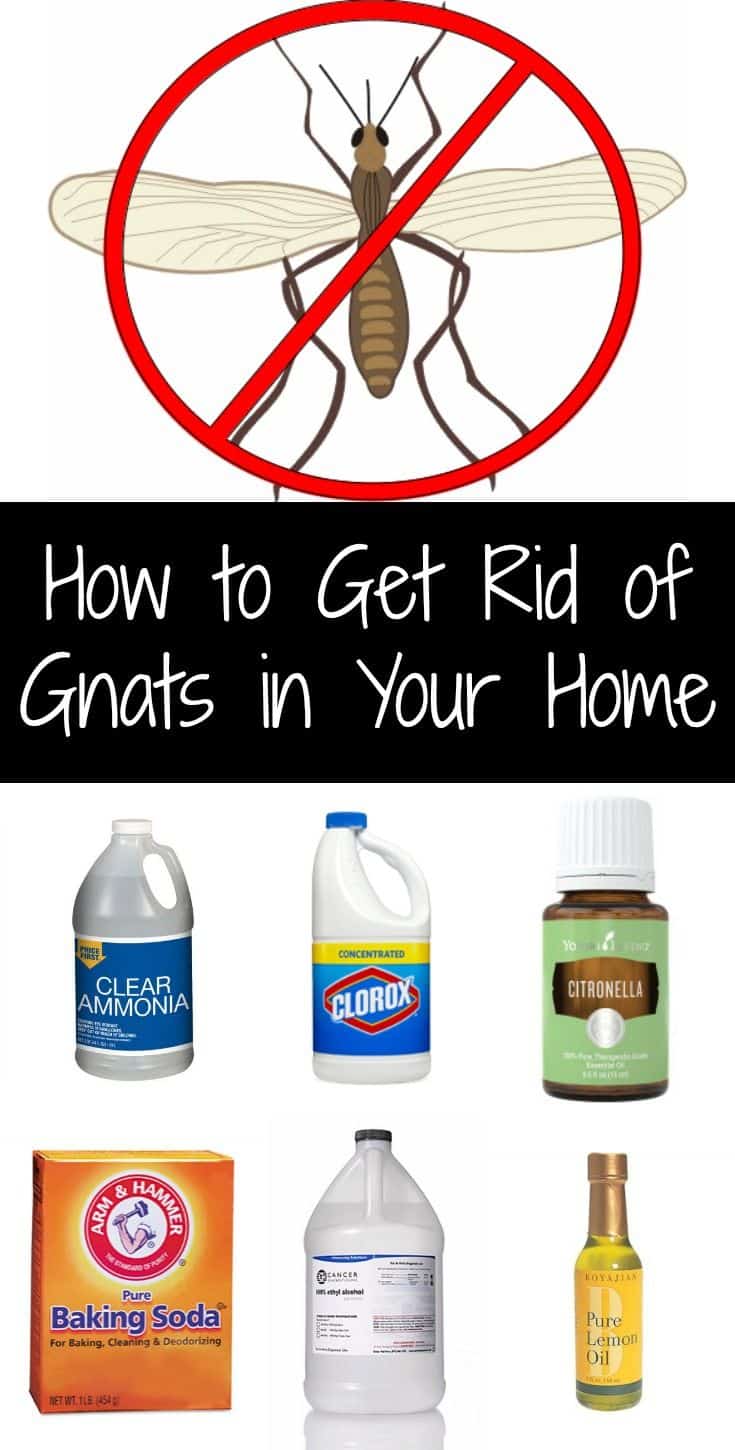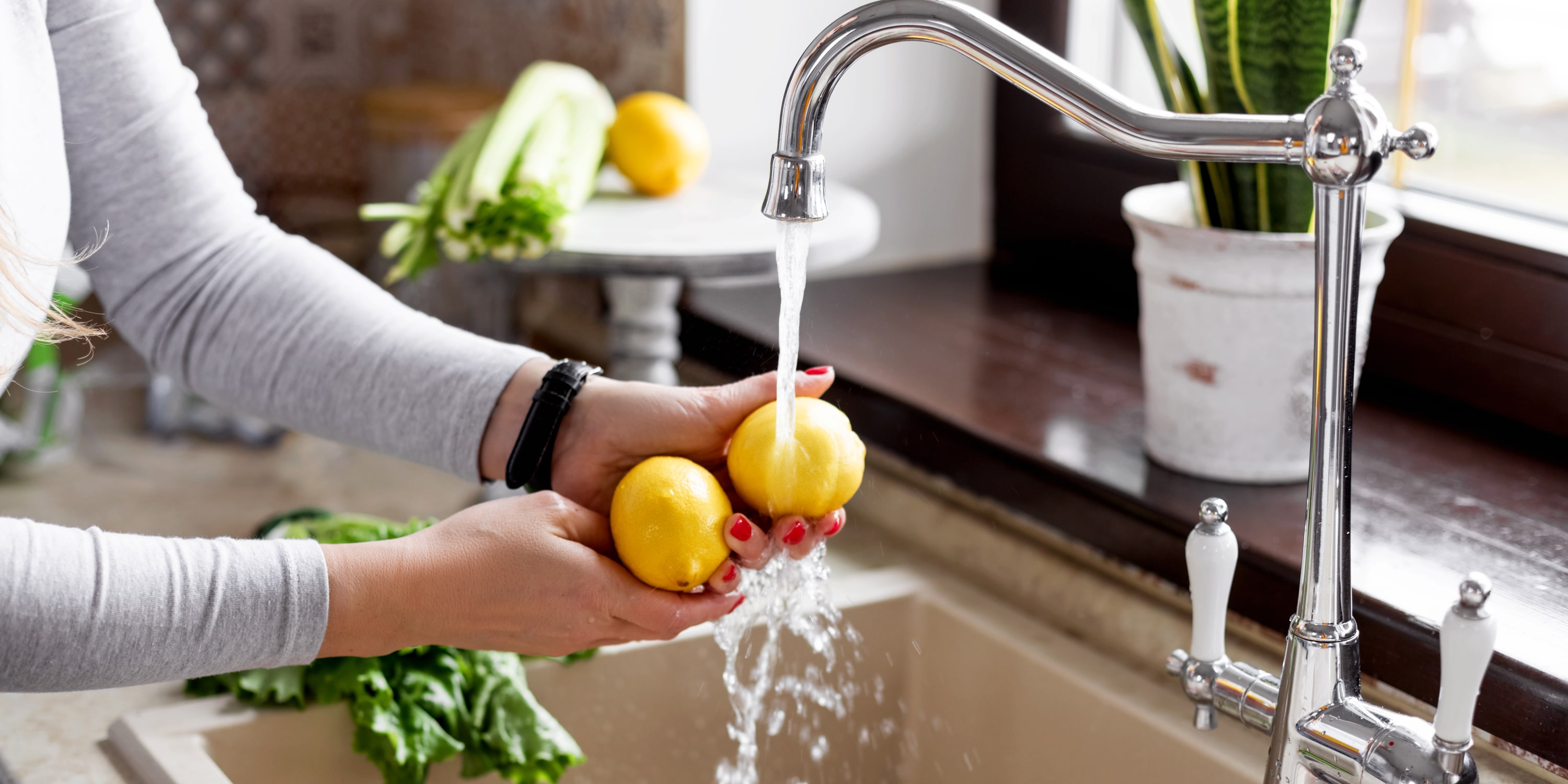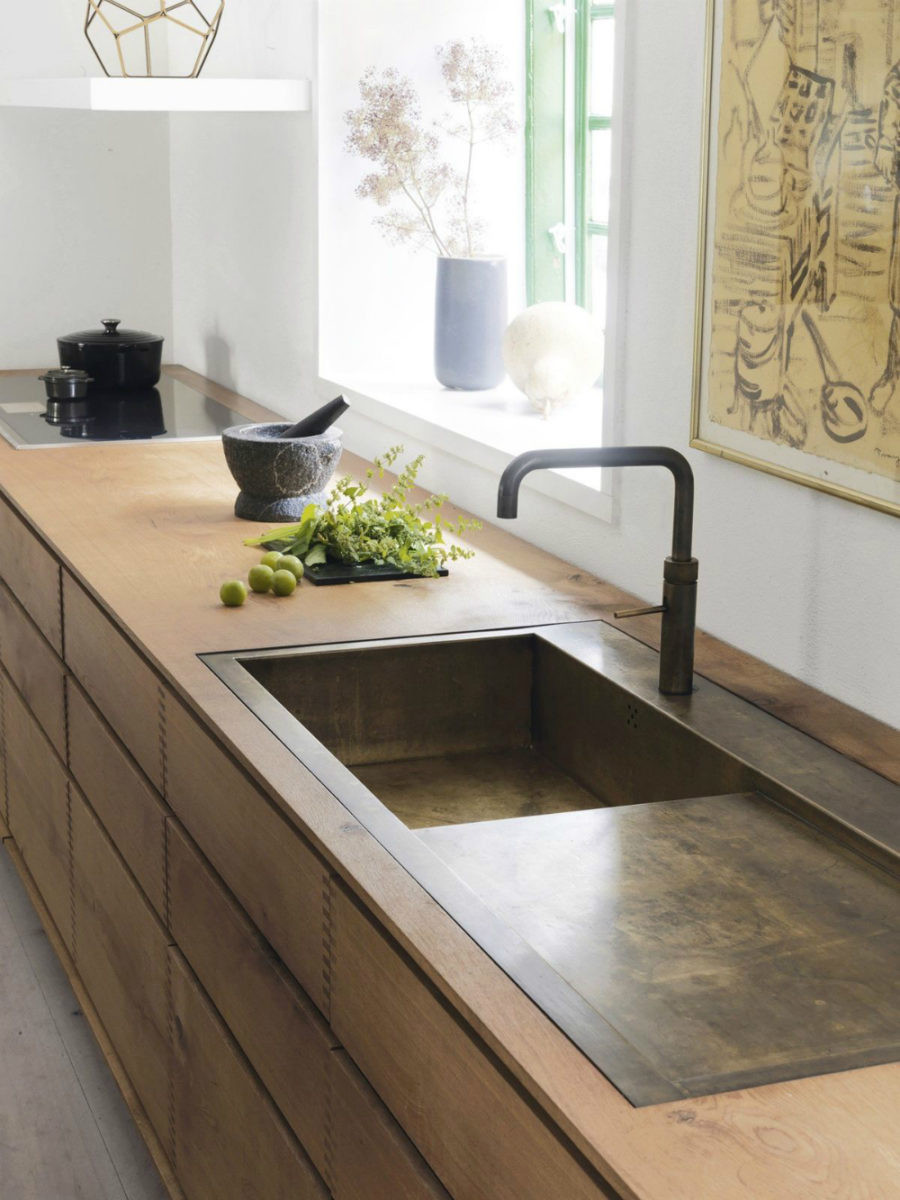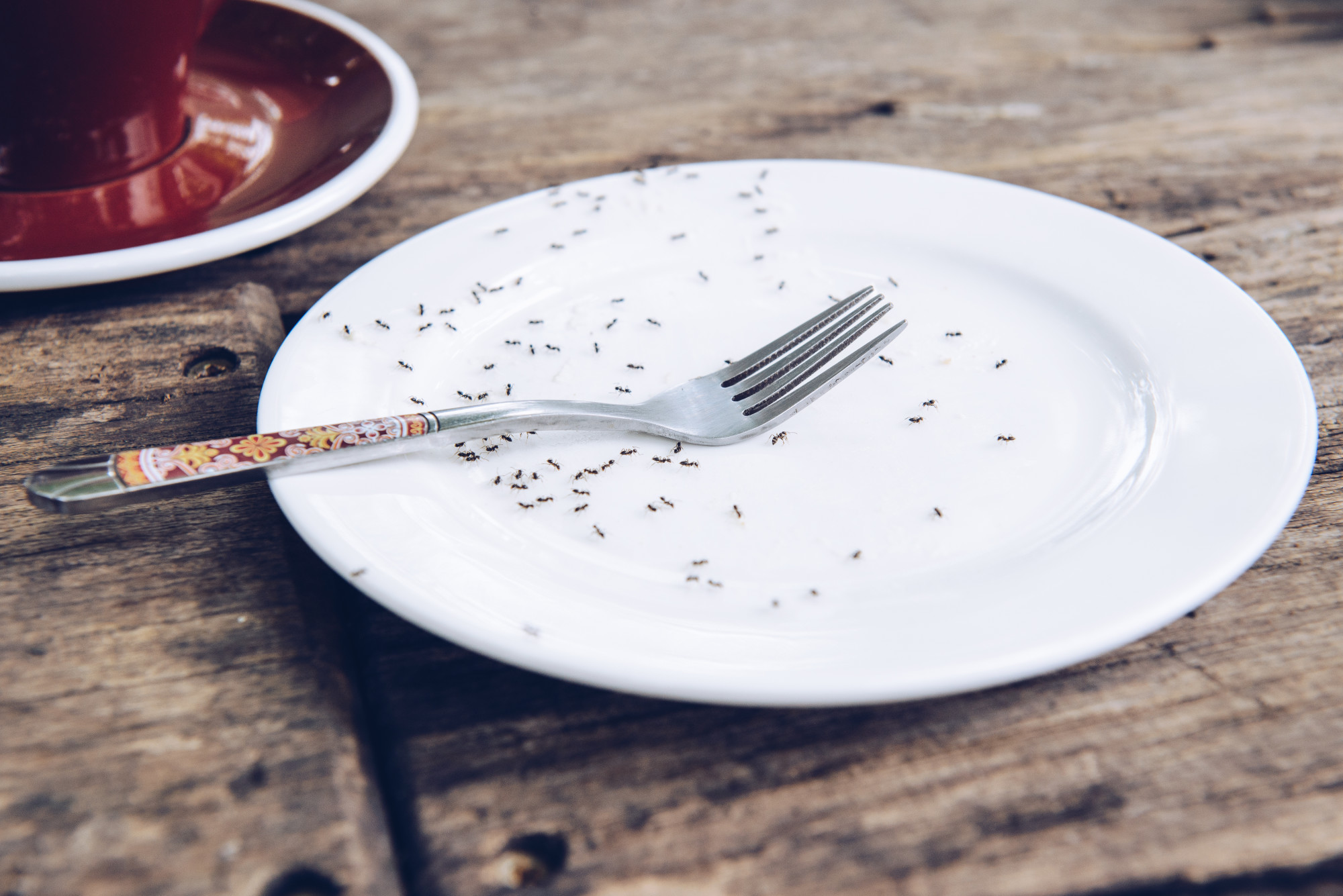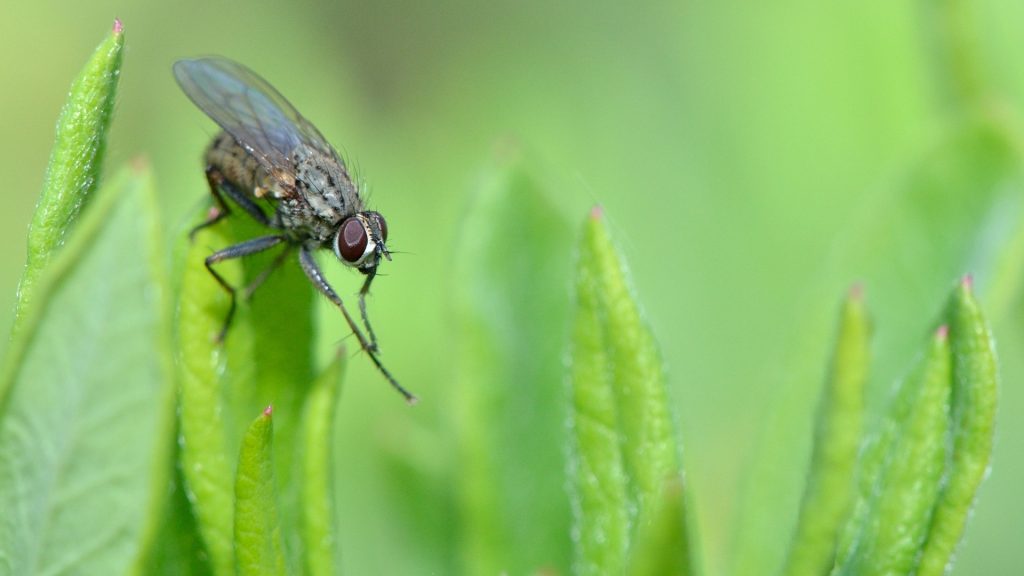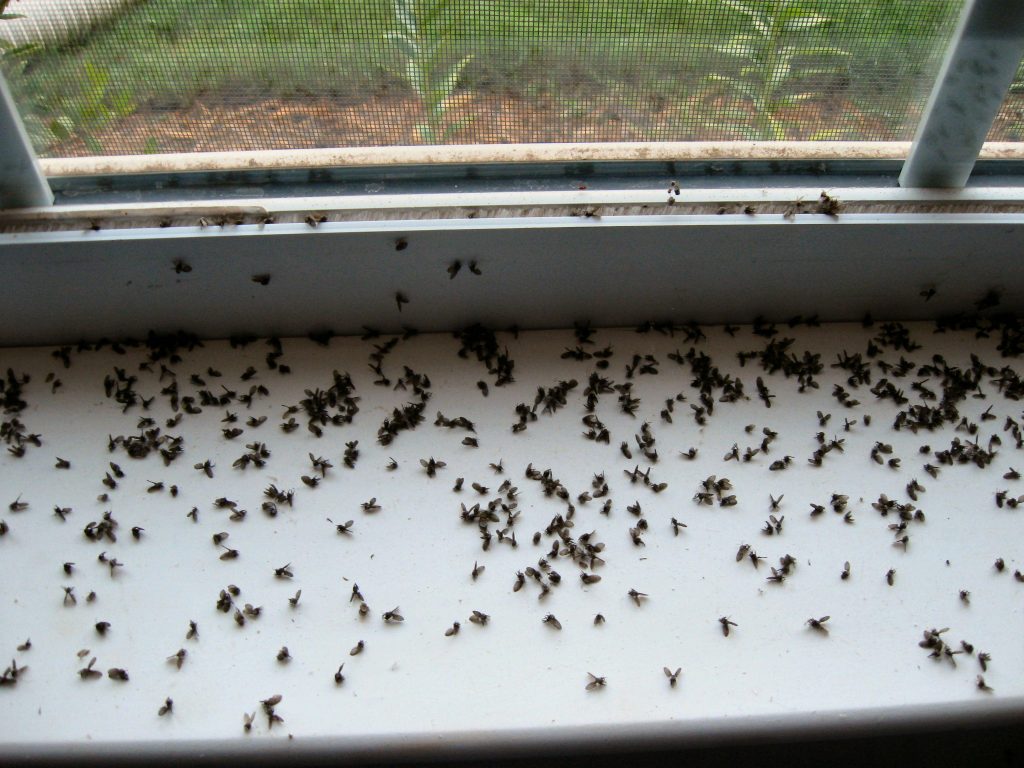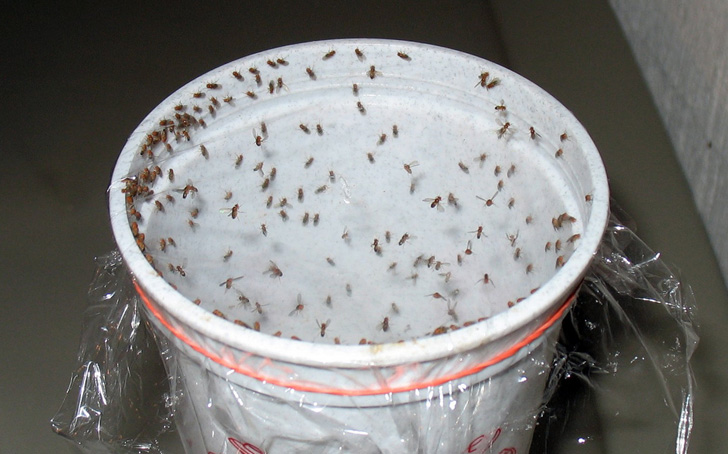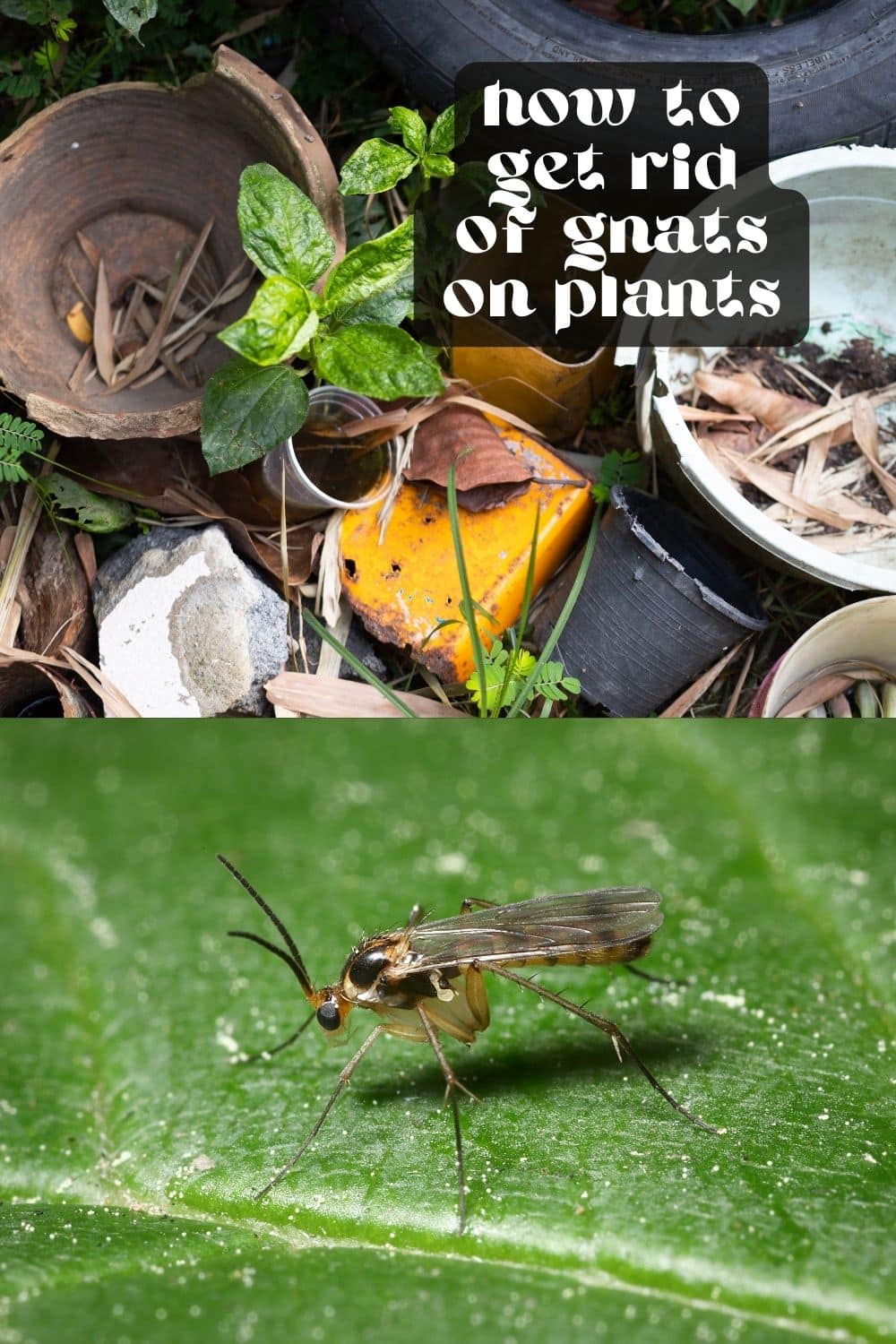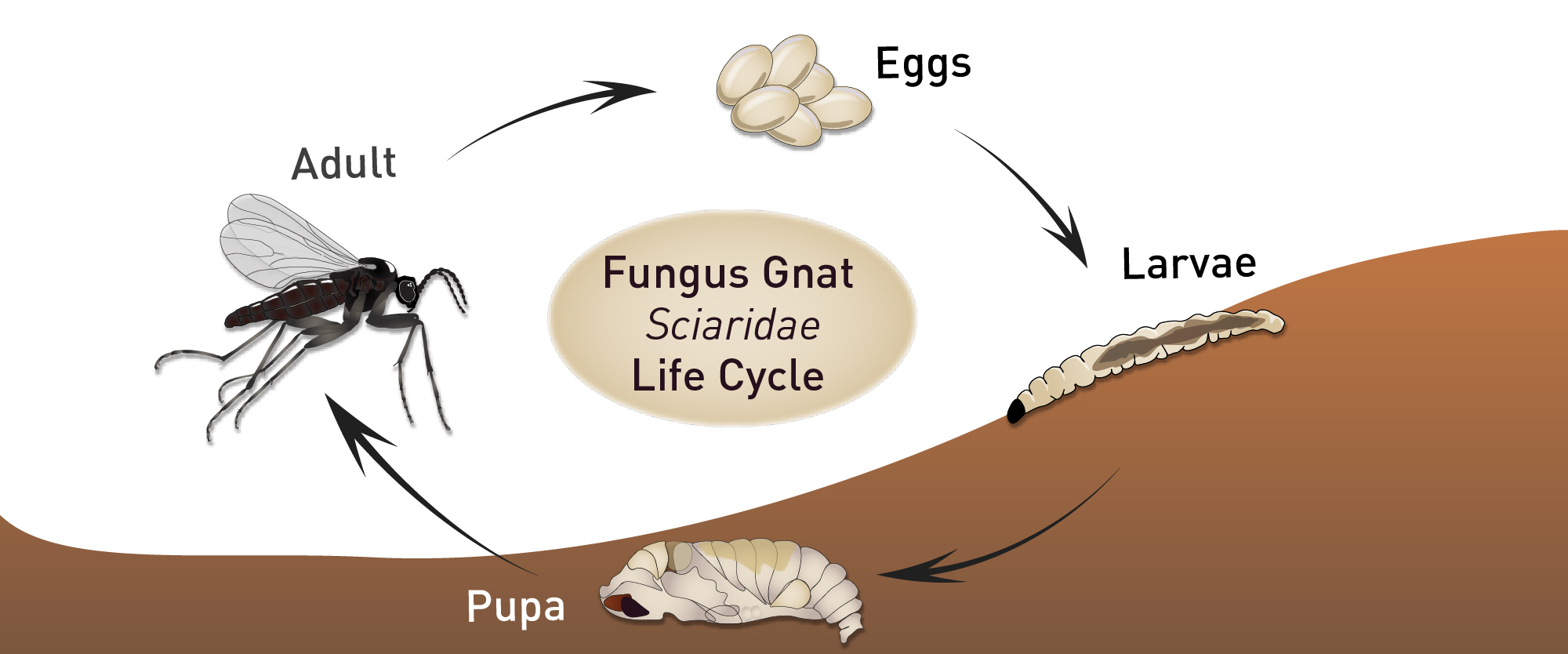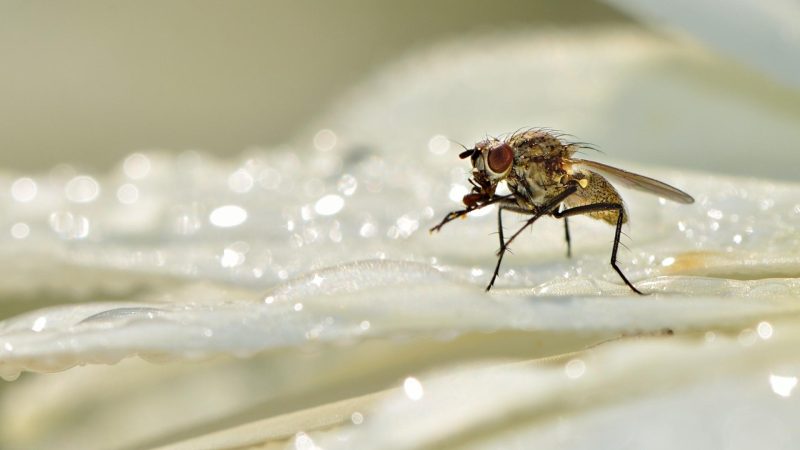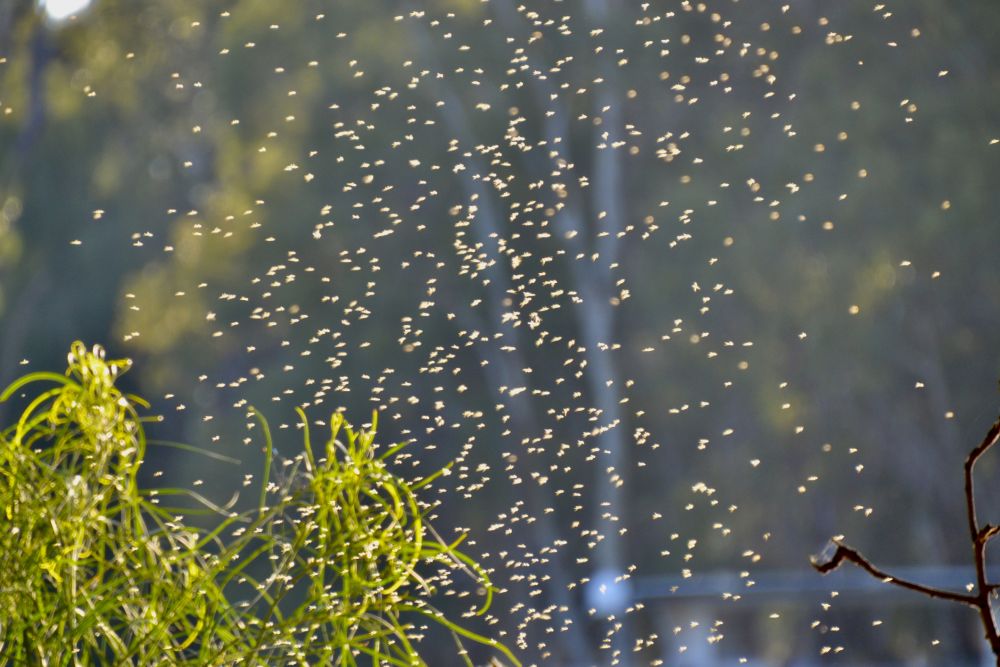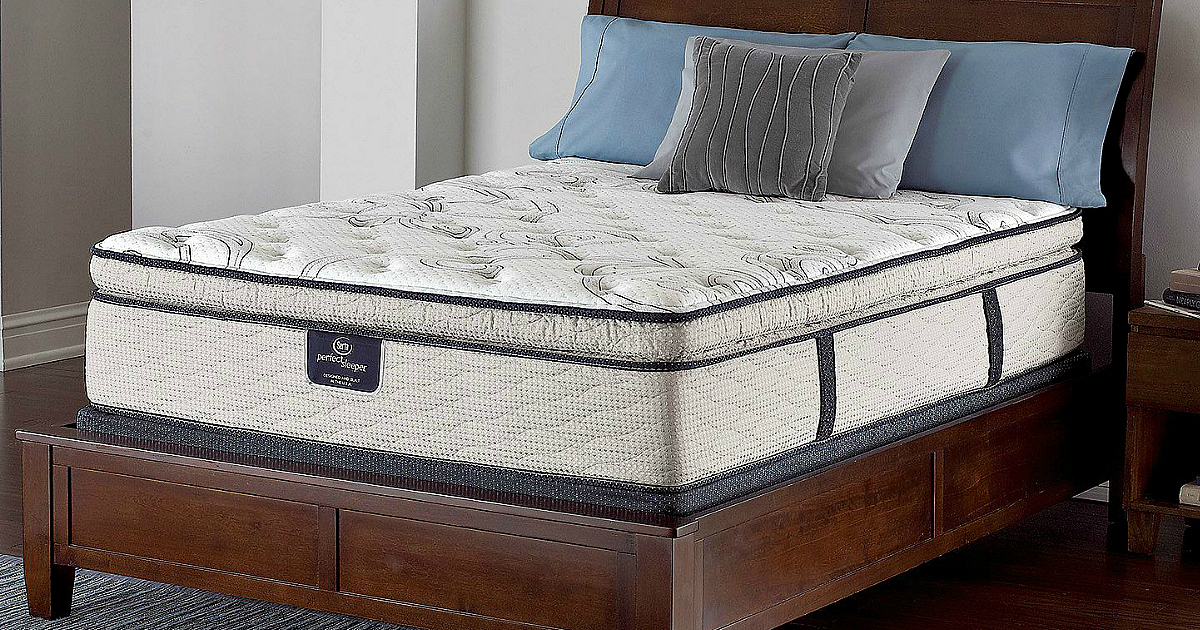Gnats in the kitchen sink can be a frustrating and unsanitary issue for any homeowner. But have you ever wondered why they are so drawn to your sink in the first place? There are a few potential causes for these pesky insects to make their way into your kitchen. One of the main reasons gnats are found in the kitchen sink is because of the presence of moisture and organic matter. Gnats are attracted to damp environments, making your sink the perfect breeding ground for them. If you have any standing water or food particles trapped in your sink, it can serve as a prime spot for gnats to lay their eggs and thrive. Another possible cause of gnats in the kitchen sink is the presence of decaying fruits or vegetables. These insects are particularly drawn to rotting produce, so if you have any left in your sink or garbage disposal, it can easily attract gnats. To prevent gnats from making a home in your kitchen sink, it’s important to address these potential causes and take proactive measures to keep them at bay.1. Causes of Gnats in the Kitchen Sink
If you’re dealing with a gnat infestation in your kitchen sink, there are several steps you can take to get rid of them. The first and most important step is to eliminate any sources of moisture in your sink. Fix any leaky pipes or faucets and make sure your sink is completely dry after use. You can also use a natural drain cleaner to remove any buildup of organic matter that may be attracting gnats. Next, it’s important to properly dispose of any rotting fruits or vegetables and keep your kitchen clean and free of food debris. Regularly cleaning your sink and wiping down counters can also help prevent gnats from finding their way into your kitchen. In some cases, you may need to use a commercial gnat spray or trap to eliminate the infestation. Just be sure to follow the instructions carefully and keep these products out of reach of children and pets.2. How to Get Rid of Gnats in the Kitchen Sink
The best way to deal with gnats in the kitchen sink is to prevent them from entering in the first place. Here are some tips to keep these insects at bay: - Clean your kitchen regularly, including wiping down counters and keeping your sink dry - Dispose of any rotting fruits or vegetables promptly - Use a garbage disposal to break down food particles and prevent buildup - Fix any leaks or standing water in your sink or pipes - Keep your kitchen well-ventilated and use screens on windows and doors to prevent gnats from entering By following these simple steps, you can greatly reduce the likelihood of a gnat infestation in your kitchen sink.3. Prevention Tips for Gnats in the Kitchen Sink
If you prefer to use natural methods to get rid of gnats, there are several options you can try. - Vinegar: Gnats are attracted to the smell of vinegar, so creating a trap with apple cider vinegar and dish soap can be an effective way to catch them. - Essential oils: Some essential oils, such as peppermint or eucalyptus, can act as natural repellents for gnats. Mix a few drops with water and spray it around your sink and kitchen to keep them at bay. - Flypaper: Hanging flypaper near your sink can also capture gnats and prevent them from multiplying. - Diatomaceous earth: This natural powder can be sprinkled around your sink and drains to kill gnats and other insects. These natural remedies can be a safe and effective way to eliminate gnats without the use of harsh chemicals.4. Natural Remedies for Gnats in the Kitchen Sink
As mentioned earlier, moisture and organic matter are the main culprits for attracting gnats to your kitchen sink. But there are some common mistakes that homeowners make that can unknowingly invite these insects inside. - Leaving dirty dishes in the sink for extended periods of time - Not properly sealing food containers - Overwatering houseplants near the kitchen - Not cleaning your garbage disposal regularly By being mindful of these habits, you can reduce the chances of a gnat infestation in your kitchen.5. Common Mistakes that Attract Gnats to the Kitchen Sink
If you’re not sure whether you have a gnat problem in your kitchen sink, there are a few signs to look out for. - Seeing small, flying insects around your sink or drains - Noticing a musty or unpleasant odor coming from your sink - Finding gnats in other areas of your kitchen, such as near food or trash cans If you notice any of these signs, it’s important to take action immediately to prevent the infestation from spreading.6. Signs of a Gnat Infestation in the Kitchen Sink
If you’ve tried various methods to get rid of gnats in your kitchen sink with no success, it may be time to call in a professional pest control service. They will have the knowledge and expertise to identify the source of the infestation and effectively eliminate it. They may also offer preventative measures to keep gnats from returning in the future.7. Professional Pest Control Options for Gnats in the Kitchen Sink
Regularly cleaning and maintaining your kitchen sink is key to preventing gnats from making a home in your kitchen. - Use a natural drain cleaner once a week to keep your sink free of buildup - Wipe down your sink and counters after each use to eliminate any moisture or food debris - Keep your garbage disposal clean and in good working condition By implementing these practices, you can greatly reduce the chances of a gnat infestation in your kitchen sink.8. How to Clean and Maintain Your Kitchen Sink to Prevent Gnats
If you’re dealing with a small gnat problem, you can try making your own DIY traps to eliminate them. - Fruit trap: Place a piece of ripe fruit in a jar and cover it with plastic wrap. Poke a few holes in the plastic wrap and leave it near your sink. The gnats will be attracted to the fruit and get trapped inside the jar. - Vinegar and dish soap trap: Mix equal parts apple cider vinegar and dish soap in a bowl or jar. The gnats will be attracted to the vinegar but get trapped in the soap. - Candle trap: Light a candle near your sink and turn off all other lights in the kitchen. The gnats will be drawn to the light and get trapped in the wax. These DIY traps can be a simple and effective way to get rid of gnats in your kitchen sink.9. DIY Traps for Gnats in the Kitchen Sink
Understanding the life cycle of gnats can also help you prevent and eliminate infestations in your kitchen sink. Gnats go through four stages of development: egg, larva, pupa, and adult. The eggs are laid in moist organic matter, such as decaying fruits or vegetables, and can hatch within a few days. The larvae then feed on bacteria and organic matter until they are ready to pupate. The pupal stage lasts about a week, and then the adult gnats emerge. Since gnats are drawn to moist environments, your kitchen sink provides the perfect breeding ground for them. By regularly cleaning and maintaining your sink, you can disrupt their life cycle and prevent infestations. In conclusion, gnats in the kitchen sink can be a common and persistent issue for many homeowners. By understanding the causes, prevention methods, and potential remedies for these insects, you can keep your kitchen clean and free of gnats. And if all else fails, don’t hesitate to seek the help of a professional pest control service to get rid of the problem for good.10. The Life Cycle of Gnats and How it Relates to the Kitchen Sink
The Importance of House Design: Creating a Functional and Inviting Space

Why are Gnats Attracted to the Kitchen Sink?
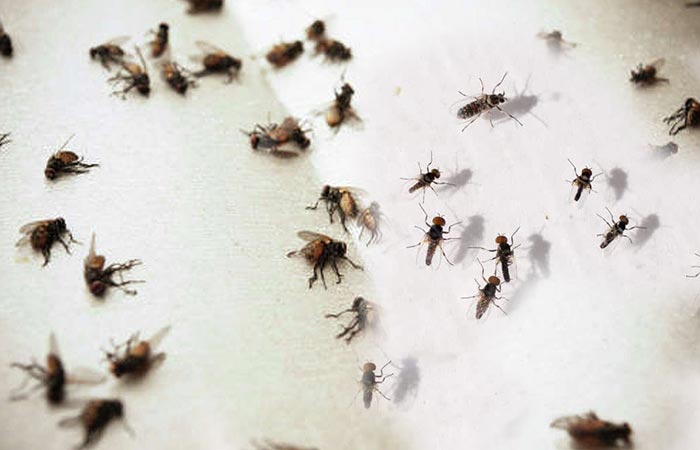 Gnats are a common household pest that can be a nuisance in the kitchen, especially when they seem to congregate around the sink. But why are these tiny insects so drawn to the kitchen sink? The answer lies in their natural behaviors and the environment of the kitchen.
Gnats are attracted to moisture and organic matter, making the kitchen sink an ideal spot for them to gather.
The sink provides a constant source of water, whether from a leaky faucet or dirty dishes that have been left to soak. This moisture, combined with bits of food and other organic matter that may be present in the drain or on dishes, creates the perfect breeding ground for gnats.
But why do gnats seem to be more prevalent in the kitchen sink compared to other areas of the house? One reason could be the warmth and humidity of the kitchen. Many kitchens are equipped with appliances such as stovetops, ovens, and dishwashers that generate heat and steam, creating a humid environment that gnats thrive in.
Additionally, the kitchen often has a variety of food sources that can attract gnats. Fruits and vegetables that are left out on the counter, dirty dishes, and even crumbs on the floor can all be appealing to these insects.
It is important to regularly clean and declutter the kitchen to eliminate potential food sources for gnats.
Aside from being a nuisance, gnats can also be a health concern. They can carry and transmit bacteria and other pathogens, potentially contaminating food and surfaces in the kitchen. Therefore, it is crucial to address and prevent gnat infestations in the kitchen.
One way to reduce the presence of gnats in the kitchen sink is to regularly clean and dry the sink and drain.
Fixing any leaks and ensuring dishes are promptly washed and put away can also help eliminate their food source. Additionally, using natural repellents such as essential oils or vinegar can be effective in deterring gnats from the kitchen sink.
In conclusion, the kitchen sink can be a magnet for gnats due to its moisture, warmth, and availability of food sources. By understanding their behaviors and taking preventative measures, it is possible to keep gnats at bay and maintain a clean and inviting kitchen.
Gnats are a common household pest that can be a nuisance in the kitchen, especially when they seem to congregate around the sink. But why are these tiny insects so drawn to the kitchen sink? The answer lies in their natural behaviors and the environment of the kitchen.
Gnats are attracted to moisture and organic matter, making the kitchen sink an ideal spot for them to gather.
The sink provides a constant source of water, whether from a leaky faucet or dirty dishes that have been left to soak. This moisture, combined with bits of food and other organic matter that may be present in the drain or on dishes, creates the perfect breeding ground for gnats.
But why do gnats seem to be more prevalent in the kitchen sink compared to other areas of the house? One reason could be the warmth and humidity of the kitchen. Many kitchens are equipped with appliances such as stovetops, ovens, and dishwashers that generate heat and steam, creating a humid environment that gnats thrive in.
Additionally, the kitchen often has a variety of food sources that can attract gnats. Fruits and vegetables that are left out on the counter, dirty dishes, and even crumbs on the floor can all be appealing to these insects.
It is important to regularly clean and declutter the kitchen to eliminate potential food sources for gnats.
Aside from being a nuisance, gnats can also be a health concern. They can carry and transmit bacteria and other pathogens, potentially contaminating food and surfaces in the kitchen. Therefore, it is crucial to address and prevent gnat infestations in the kitchen.
One way to reduce the presence of gnats in the kitchen sink is to regularly clean and dry the sink and drain.
Fixing any leaks and ensuring dishes are promptly washed and put away can also help eliminate their food source. Additionally, using natural repellents such as essential oils or vinegar can be effective in deterring gnats from the kitchen sink.
In conclusion, the kitchen sink can be a magnet for gnats due to its moisture, warmth, and availability of food sources. By understanding their behaviors and taking preventative measures, it is possible to keep gnats at bay and maintain a clean and inviting kitchen.



